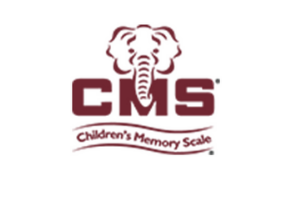Description
Assess children’s memory abilities by comparing memory and learning to ability, attention, and achievement. The Children’s Memory Scale™ (CMS) fills the need for a comprehensive learning and memory test for children ages five to 16.

Assess children’s memory abilities by comparing memory and learning to ability, attention, and achievement. The Children’s Memory Scale™ (CMS) fills the need for a comprehensive learning and memory test for children ages five to 16.
Assess children’s memory abilities by comparing memory and learning to ability, attention, and achievement. The Children’s Memory Scale™ (CMS) fills the need for a comprehensive learning and memory test for children ages five to 16.
Morris Cohen
Overview:Assess children's memory abilities
Age Range:5 to 16 years
RTI Tiers::RTI Level 3
Completion Time:30 minutes
Forms:Two, one for ages 5-8, and one for ages 9-16
Norms:National sample of 1,000 normally functioning children. Subtest Scaled Scores and Index Scores representing critical domains of learning, attention and memory.
Publication Date:1997
Now you can compare memory and learning to ability, attention, and achievement. The Children’s Memory Scale™ (CMS) fills the need for a comprehensive learning and memory test for children ages five to 16.
As a screener or diagnostic instrument, CMS measures learning in a variety of memory dimensions:
For children with learning disabilities, diagnosed with TBI, ADHD, epilepsy, cancer, brain tumors, or strokes.
Includes extensive interpretive information, strategies for intervention based on a child’s CMS
score and pattern of performance.